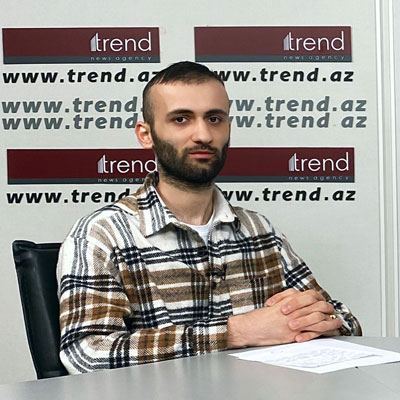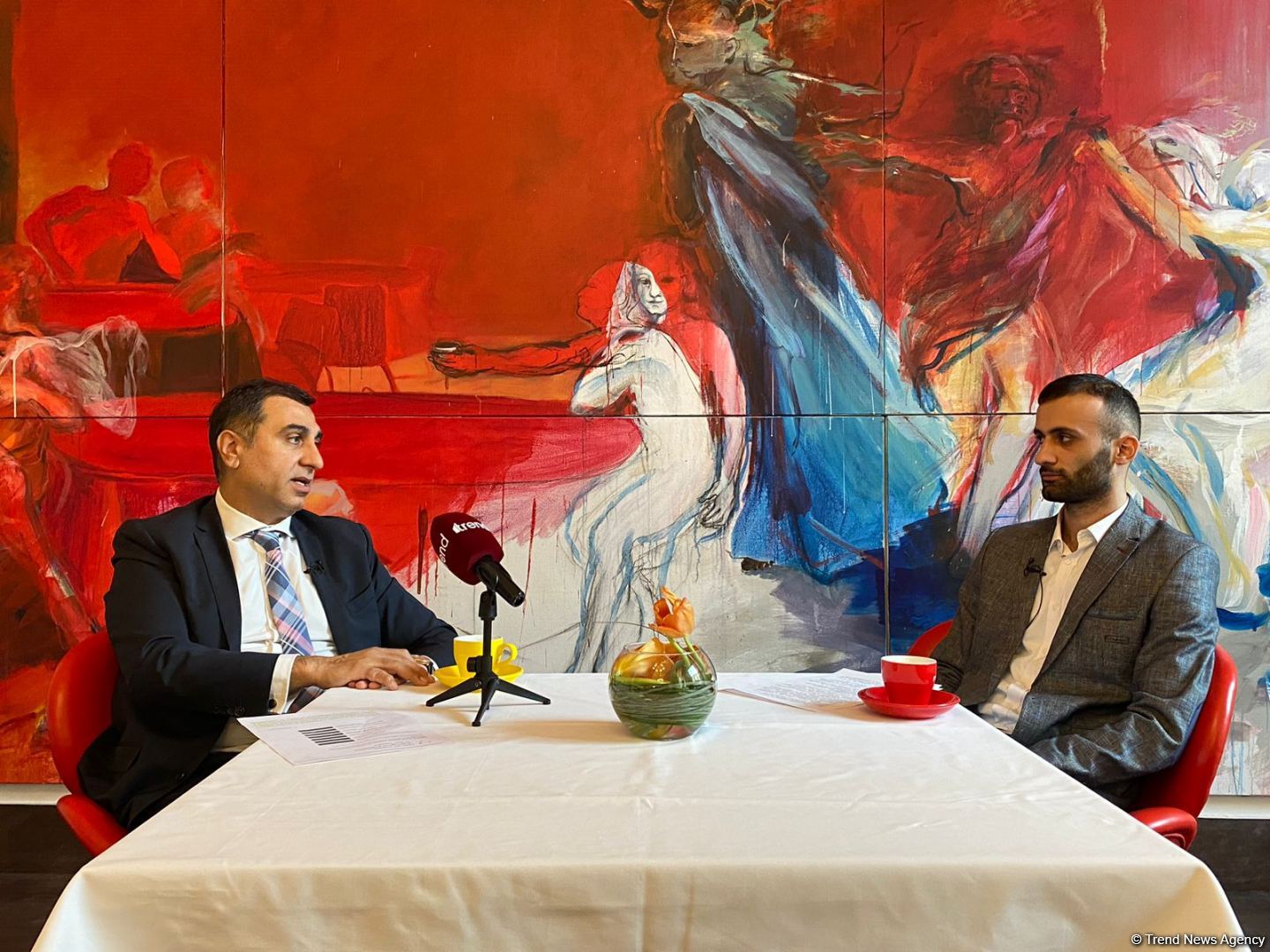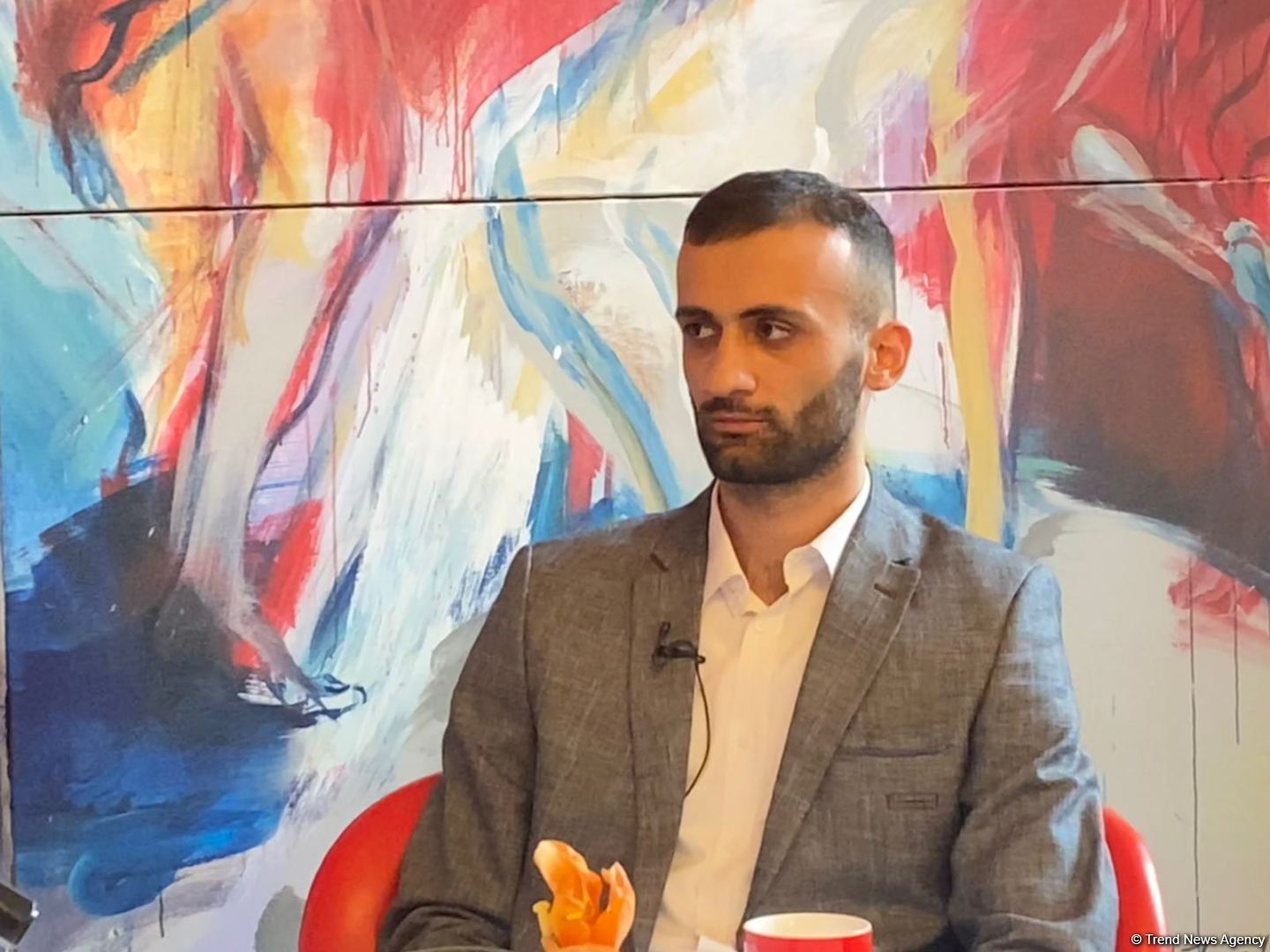BAKU, Azerbaijan, February 15. Azerbaijan has been conducting a very strict monetary policy for several years, Movlan Pashayev, Managing Partner of PwC in Azerbaijan, told Trend in an exclusive interview.
According to him, this policy continues today.
"Due to the strict monetary policy, we are able to curb inflation. There are several reasons for the inflation that is observed globally, including in Azerbaijan. This can include a sharp waste of funds, which the population saved during the pandemic, resulting in the "overheating" of the economy in many countries," he said.
He stated that the Russia-Ukraine war can be considered another factor of global inflation growth, as it caused significant "shocks" in the supply chain and rising prices for household goods.
"Due to the fact that Azerbaijan sticks to a strict monetary policy, it manages to curb inflation to a certain level. Increases in wages, pensions, scholarships, and other social benefits, as well as tightening monetary policy, still allow for some compensation for existing price growth. In addition, we also see the active work of the antimonopoly service, which strictly controls the consumer market and prevents artificial price increases," he added.
Pashayev noted that Azerbaijan's tax reforms further promote economic development and attract foreign investments.
According to him, taxes and preferences are of the utmost importance since they help create the image of the country, and favorable conditions for running businesses and investing.
"Nevertheless, tax preferences cannot be seen as the main factor for business promotion. First of all, a stable economy and regulatory mechanisms are important for business, that is, the protection of businessmen and their investments. I also consider the role of intellectual property protection to be important. From the point of view of economic and social stability, Azerbaijan has no problems attracting investments and creating business in the country," he said.
As Pashayev explained, Azerbaijan is currently undergoing a profound transformation in the tax field, and, moreover, a new tax strategy is expected to be adopted in the near future, which will reflect all the key and necessary actions that will further stimulate the development of the economy and attract foreign investments.
He pointed out that future development prospects for the country's economy, and the business sector in particular, is quite optimistic.
According to him, many directors see great prospects for their development given the current reforms.
"We have completed the collection of information as part of the 6th annual survey of company executives. The survey was conducted among the heads of more than 100 companies in various sectors of the economy, both private and public organizations. At the moment, the information is being processed, and we expect that by the middle of March this year, the full report will be ready. I can note for now that the level of optimism in the development of the economy and companies of Azerbaijan was quite high in 2022. Many directors see great prospects for their development given the current reforms. Of course, there are still problems with various aspects of doing business. First of all, it is the regional and global volatility of the economy," he said.
Speaking about the global survey of company executives, Pashayev noted that 40 percent of heads believe that their companies will not survive if they start to reform quickly enough.
"First of all, it concerns technologies and the retraining of personnel. They also take into account various global risks such as inflation, macroeconomic instability, and geopolitical conflicts, in particular, the Russia-Ukraine war. Resuming the survey, we can say that there are five new megatrends in the world. Among those trends are climate change, advanced technology and its impact on the economy, and demographic changes, in particular, in Europe, Japan, and other countries, where the rapid aging of the population is observed while society is getting younger," he said.
According to him, the other megatrends are social instability and deglobalization.
"According to our survey, it is precisely these challenges that the heads of our companies face. If the business does not change, at least for the next five years, the companies will not survive," he added.
Further speaking, Movlan Pashayev pointed out that the launch of the Alat Free Economic Zone will be of great benefit to Azerbaijan.
"Azerbaijan is implementing a combined model of free economic zones - both using the experience of various countries and its own initiatives. None of the economic zones will be successful unless there is an accurate regulatory system in place and investors understand what they will face and what preferences exist. I would like to note that the benefits of the free economic zones for our country are attracting know-how, further strengthening the country's image, as well as creating a professional and qualified workforce, and accelerating the development of various sectors of the economy," Pashayev said.
As he explained, Alat Free Economic Zone meets the country's interest and contributes to the attracting of additional investments. Currently, work is underway to establish infrastructure, and the first investment contracts have already been signed.
Furthermore, speaking about the financial sector of Azerbaijan, Pashayev said that for many years this field has remained advanced in terms of attracting and utilizing technologies, as well as training personnel.
He noted that, from the point of view of the mentioned features, Azerbaijan's financial sector is one of the most advanced.
According to him, great transformation processes are expected in the financial sector of Azerbaijan.
"Based on our conversations and the audits we do, we can conclude that the financial sector of the country is stable. However, in this changing environment, banks, both ours and those around the world, must introduce new innovations, products, and services in order to "survive," he added.
Pashayev also believes that the ongoing reforms in Azerbaijan create a favorable investment environment. The approach currently taken by Azerbaijan is directed towards liberalization of the country's economy, increasing the efficiency of enterprises, public ones in particular, and increasing the competitiveness of goods and services both on the regional and global markets. From the point of view of achieving the set goals, the PwC manager believes that, to a certain extent, Azerbaijan is modernizing the old system and creating an absolutely new approach.
Summing up, Pashayev noted that the PwC strategy in Azerbaijan is primarily aimed at promoting local business, both private and state successfully to transform and become effective and competitive.
"PwC is aimed at assisting Azerbaijan in the development of enterprises and businesses, strengthening their competitiveness, changing their structure, and improving the form of doing business in accordance with the challenges that it faces. These risks will continue for at least another 2-3 years, and we do not expect the global economy to stabilize - it will keep changing. Azerbaijan, as a part of the world economy, will definitely be subject to these shocks. And we advise the heads of enterprises on how they can resist them and how companies can survive in a rapidly changing time," he concluded.












